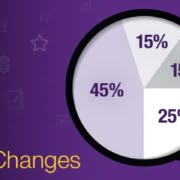How P3care Handles Medicare MIPS Reporting For Cardiologists
P3Care.com sort things out with the payers and at the same time keep the communication lines open on behalf of the providers. This way the patients receive the best care and the insurance reimbursement workflow keeps on moving.
Everyone is happy.
In addition, P3Care has a strong grip over the Quality Payment Program under MACRA. The Merit-Based Incentive Payment System (MIPS) track reporting mechanism for both the specialty-specific clinicians and the primary-care physicians brings in both incentives and reputational benefits.
What is P3?
The three “Ps” stands for –
- Providers
- Patients
- Payers
P3Care Simplifies MIPS Reporting for Specialists
A merit-Based Incentive Payment System (MIPS) is an integral part of the value-based system. In addition, CMS recognizes P3Care as a MIPS Qualified Registry vendor in back to back years of 2017 and 2018. That makes it a favorable enterprise for physicians who want to choose a registry as their MIPS submission method.
The recognition puts a bigger responsibility on our shoulders in terms of performance and meeting your expectations.
The US healthcare system revolves around a working relationship between providers, patients, payers, and medical billing services. If there are disparities at any level, at any step, there is a high probability of bottlenecks.
The government has set the course for MIPS in healthcare to go the distance and want all the clinicians to accept it. If they fail to comply with MIPS, they must be ready to face financial penalties along with putting their integrity on the line.
Heart specialists or cardiologists choose quality measures, outcome measures (or high-priority measures) from specialty-specific sets and start their journey for incentives through MIPS reporting. We take a few minutes of your time and finalize measures before submitting them to CMS.
Peace of Mind for Cardiologists
What do the cardiologists say?
First, they are ready to participate in the Merit-Based Incentive Payment System (MIPS). They are actually more excited about it than the general physicians. However, more than half of the cardiologists working in the healthcare industry have reported fatigue and higher stress levels due to excessive documentation.
If IT regulations ease up, it may give them ample time to treat patients and rest as well. P3 Healthcare Solutions is here to help you report MIPS in a timely manner. Connect with us at 909-245-8350 to discuss.
CMS Incentivizes Practitioners
The doctors’ job is to treat the patients, but instead, they work 10 to 20 hours a week on paperwork. That is the fact, unfortunately.
The ground reality is that CMS has allocated $20 million on the smooth transition to the Merit-Based Incentive Payment System. All these initiatives are going to improve healthcare down to the grassroots level. It must do so and silence those voices screaming the phrase, ‘Americans not getting the treatments they deserve’.
To make it more difficult for cardiologists, the data coming out of the EHR system is vague and doesn’t help with the diagnosis. Often it is descriptive rather than suggesting crucial care points. P3Care brings a solution to this problem by synchronizing the medical billing service for cardiologists with the practice management system.
Specialty-Specific Demotivating Factor
There are no standards set for specialty-specific clinicians when it comes to MIPS quality measures. Hence, there is no way to compare the scores of specialists. The result is a low MIPS Final Score, and there may be no bonus payments at all. It is derogatory and depressing.
Quality measures outlined by the Qualified Clinical Data Registry (QCDR) reporting mechanism also have a similar story. Generally, many specialists vote in favor of QCDR.
Data Submission for Physicians and Specialists
After the month of March, CMS takes around 6 months to generate detailed results on MIPS reports.
Medicare MIPS reporting on Quality measures through a registry is highly suitable because it helps to identify and list down probable errors in the report. There is no other way to identify any ambiguities because CMS directly publishes the results. We can’t afford to make mistakes. However, at the end of those evaluations, CMS gives time to practitioners to ask for a review if they are not satisfied with the MIPS final score.
MIPS Cost Measures
Cost is an additional category in MIPS 2018. It accounts for 10% of the composite performance score (CPS). As a cardiologist, you don’t need to worry about it, though. CMS directly manages this category according to your billing to Medicare.
P3Care has a plan in place for the cost category so that CMS gives you the highest ratings on it. We are technologically tenable and keep a close eye on the news, views, happenings, and information regarding the US healthcare industry.
When you add the inpatient and outpatient costs, the average of which is compared to the national standard set in the specialist category. That is an overview of how the cost category is calculated. The lower the cost, the better the ratings!
















How P3care Handles Medicare MIPS Reporting For Cardiologists
P3care handles Medicare MIPS reporting for cardiologists by offering comprehensive services that include data collection, measure selection, performance tracking, and submission of MIPS data, ensuring compliance with Medicare requirements and maximizing reimbursement opportunities.